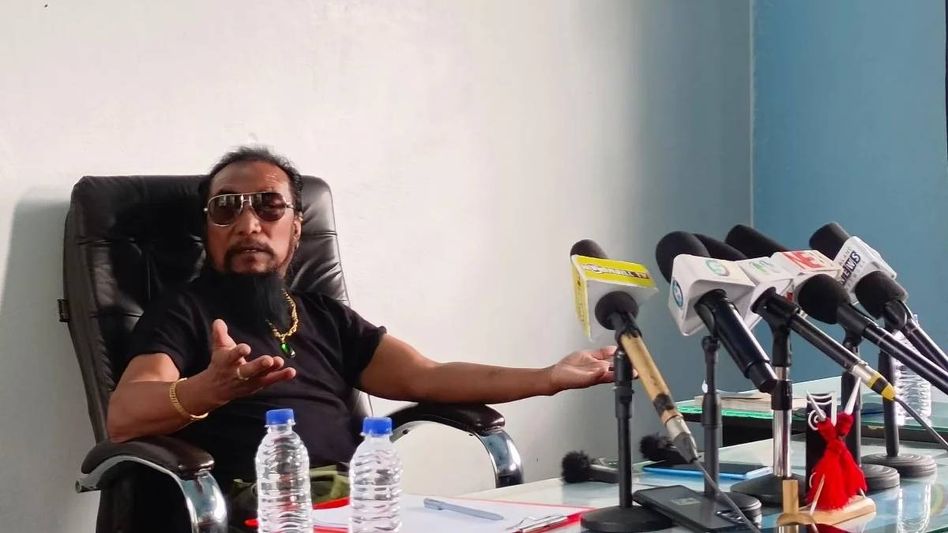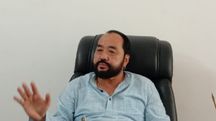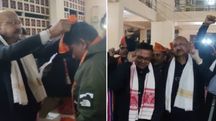Nagaland: Niki Sumi blames overground leaders for stalling Naga political solution
Sumi traced the origins of the Naga struggle to A.Z. Phizo, who led the movement for sovereignty during and after World War II.
 Nagaland: Niki Sumi blames overground leaders for stalling Naga political solution
Nagaland: Niki Sumi blames overground leaders for stalling Naga political solutionNSCN/GPRN (K) President Niki Sumi has blamed "overground leaders and agents" for the failure to achieve a lasting solution to the Naga political issue, accusing them of colluding with the Government of India. Addressing the media at the Ceasefire Monitoring Office in Padumpukhri on Saturday, Sumi reflected on the historical trajectory of the Naga movement, which, he believes, has lost direction due to internal division and external interference.
Sumi traced the origins of the Naga struggle to A.Z. Phizo, who led the movement for sovereignty during and after World War II. He questioned whether Phizo’s decision to align with the Japanese and later seek asylum in London contributed to the loss of momentum in the fight for independence.
He emphasized that the Nagas were historically sovereign, resisting external domination. However, administrative changes, such as placing Nagaland under the Ministry of External Affairs, complicated the issue. Although statehood brought certain benefits, Sumi acknowledged that the Naga community remains divided over whether these have been substantial.
Highlighting past political milestones, Sumi criticized the role of "overground intellectual leaders" in the breakdown of early peace talks and agreements like the 1975 Shillong Accord. He noted that divisions within the movement led to the formation of the NSCN and its eventual splintering into factions. Today, the Naga struggle is caught between two agreements—the Agreed Position (AP) and the Framework Agreement (FA)—and Sumi called for a united solution to reconcile the two.
Sumi also addressed the importance of "One Government, One Tax" and urged greater unity among Naga political and civil groups to avoid further fragmentation.
Copyright©2026 Living Media India Limited. For reprint rights: Syndications Today









